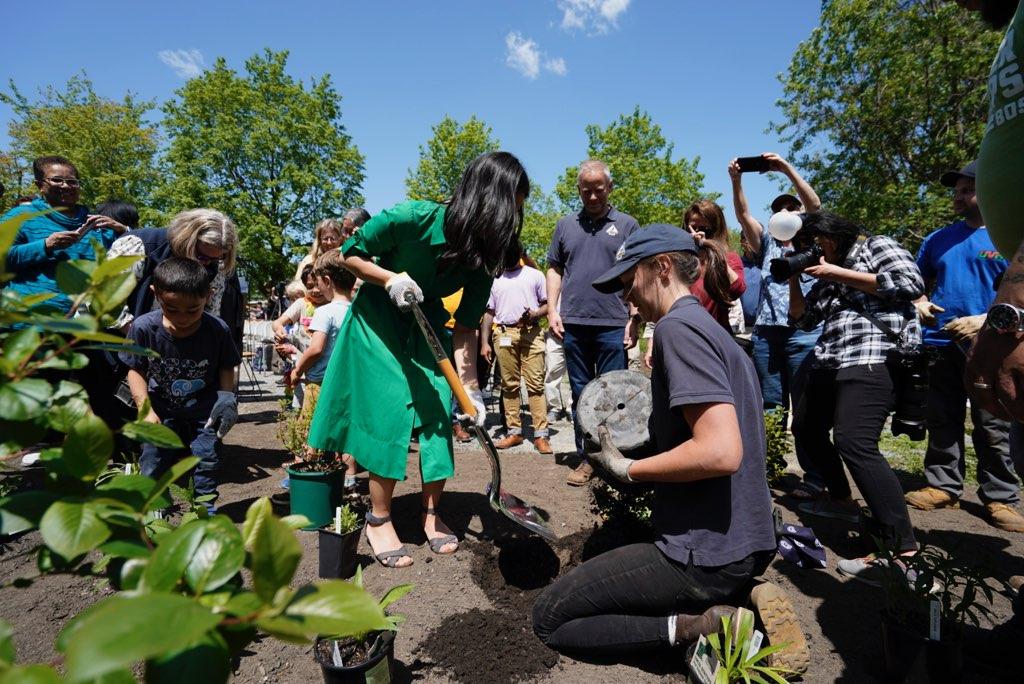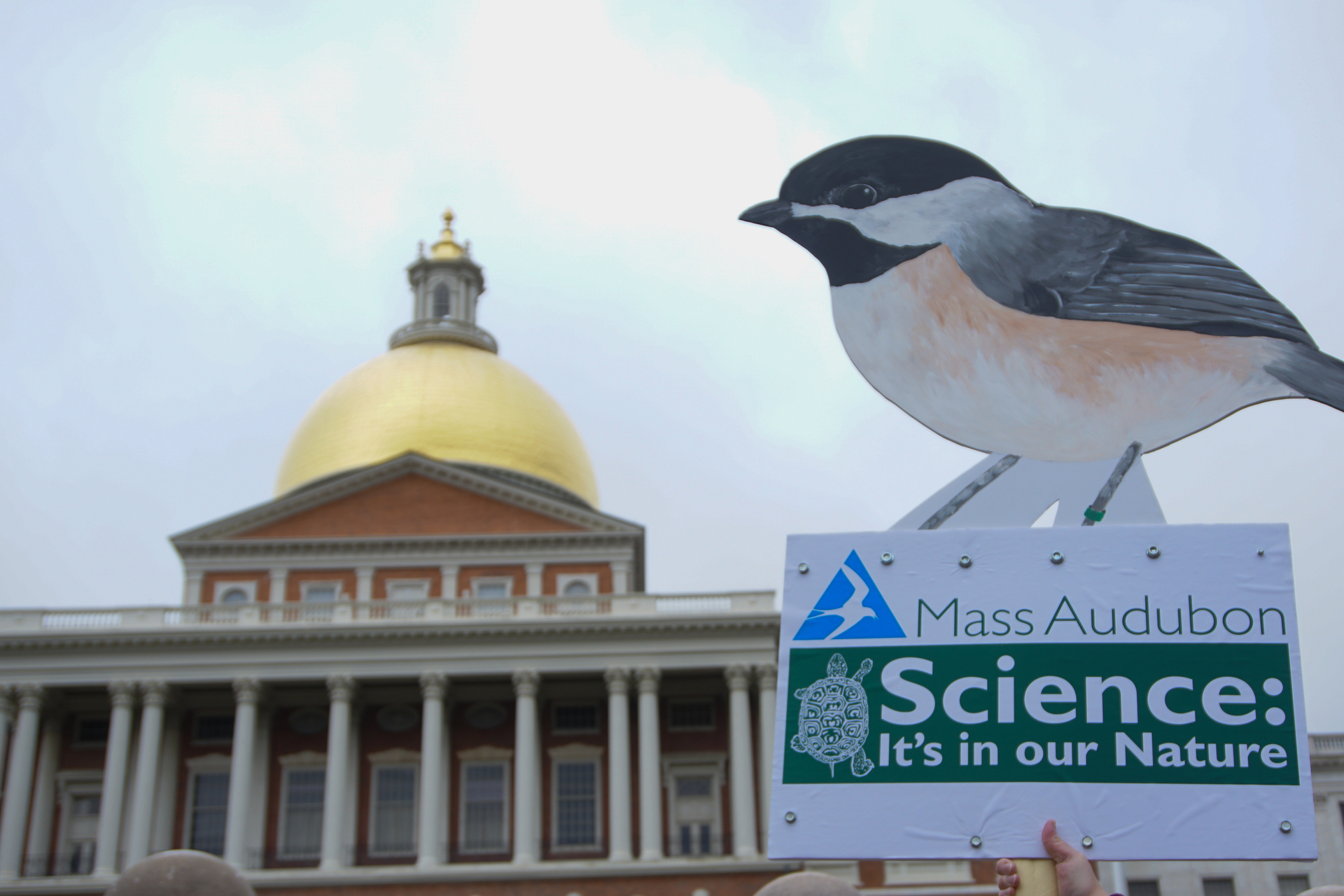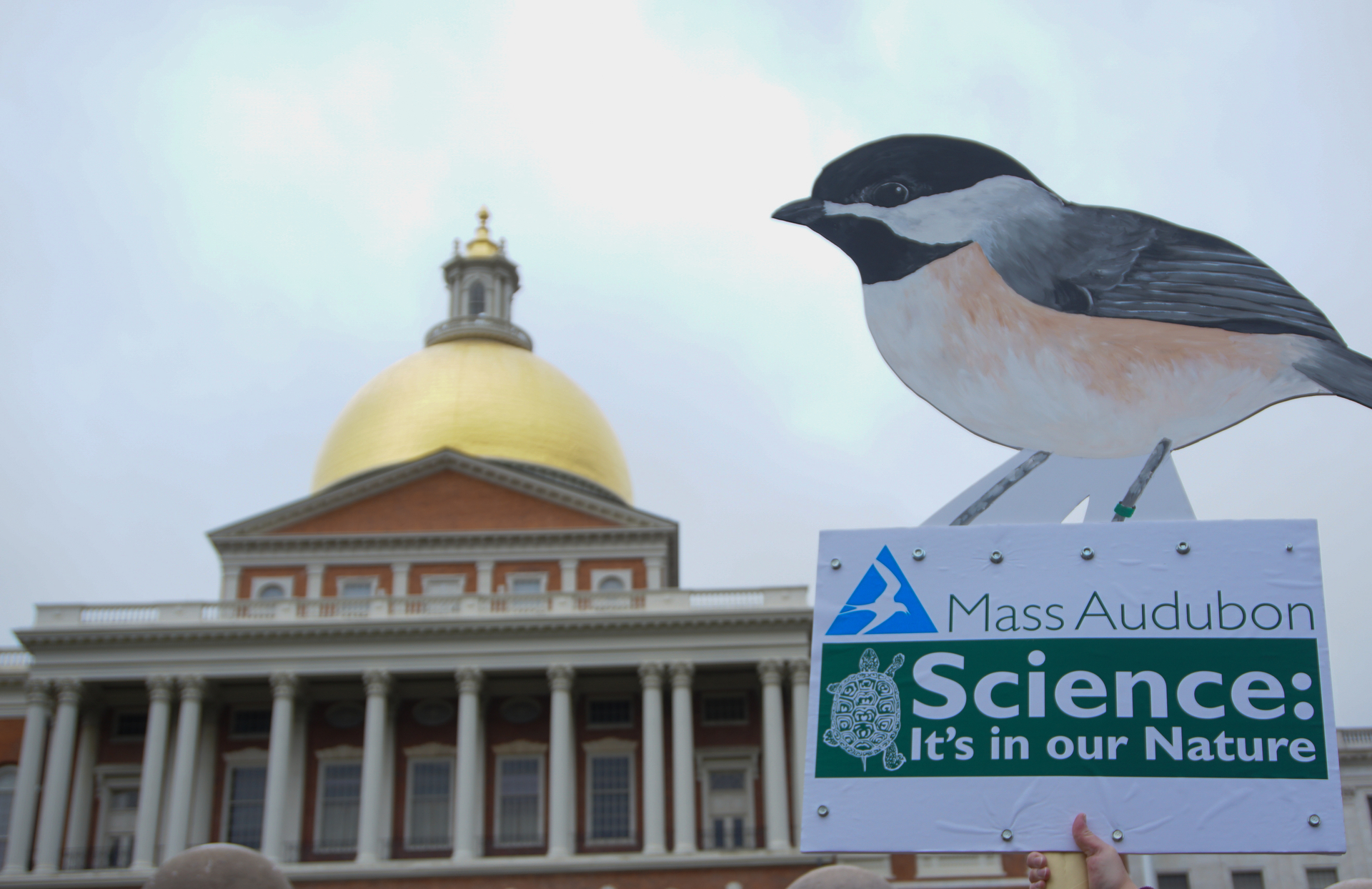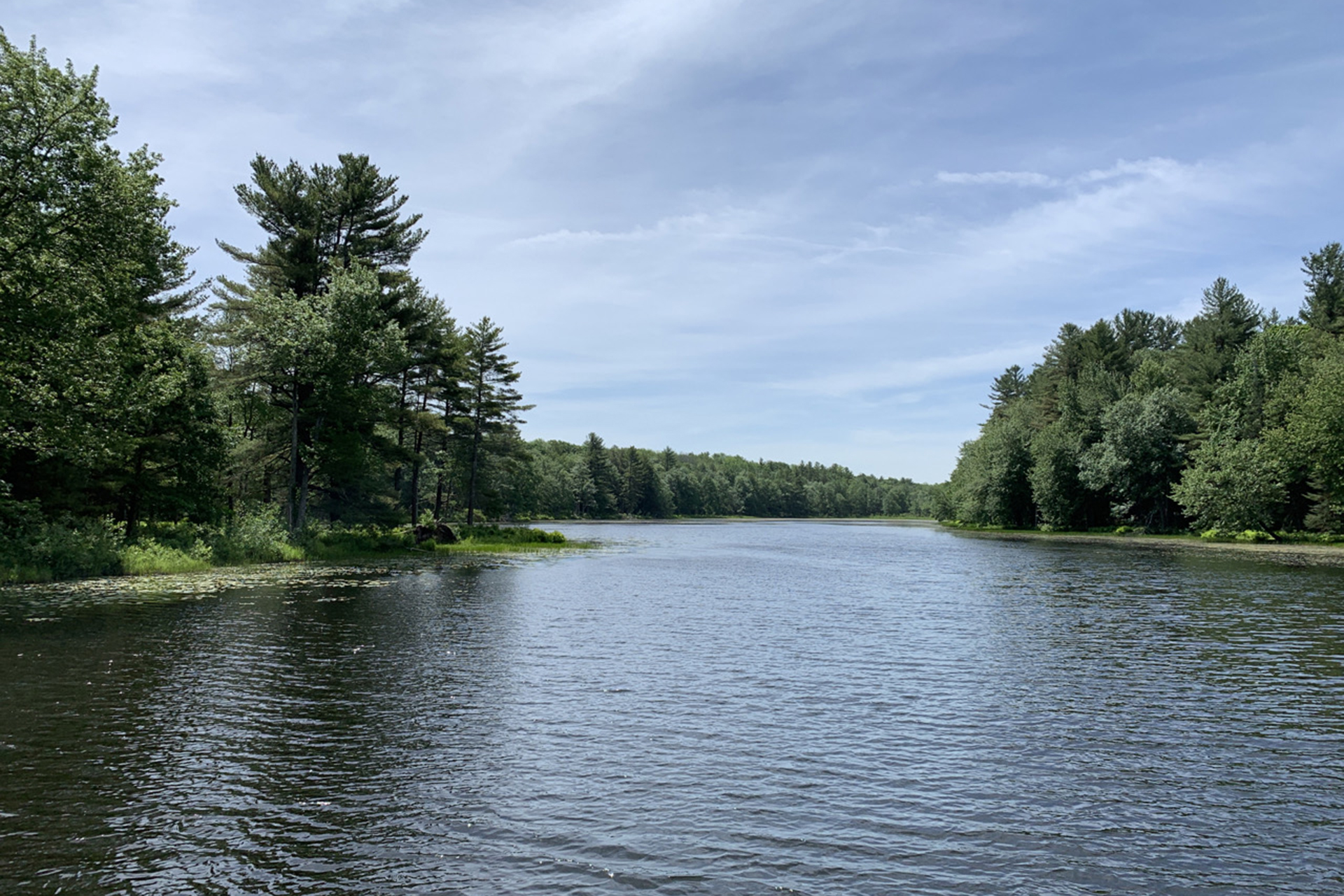Mass Audubon Chosen by Mayor Wu to Lead New Program Planting Trees on Private Land to Bolster City’s Tree Canopy
Press Release
May 16, 2023
MATTAPAN — Mass Audubon has been tapped by Mayor Michelle Wu to lead a new program that will plant and maintain trees on private land to enhance the livability of Boston by expanding its tree canopy and directly improving public health.
Mayor Wu made the announcement Friday during a tree planting ceremony at Mass Audubon’s Boston Nature Center and Wildlife Sanctuary in Mattapan, where she was joined by Mass Audubon President David O’Neill and more than 100 community members and supporters. Wu said Mass Audubon will convene a larger group of nonprofits to form a Tree Alliance that will collaborate on an annual plan for tree planting and ongoing maintenance on private land in areas that experience heat islands due to lack of tree cover. This program follows the recommendations of Boston’s first Urban Forest Plan (UFP), an assessment of Boston’s urban forest with suggestions to improve the way trees are cared for and ensure that urban trees and their benefits are increasingly equitably distributed across the entire community.
“Increasing the number of trees in Boston will enhance our neighborhoods’ livability, health, and resilience benefiting both our climate and our residents,” said Mayor Michelle Wu. “I’m grateful to our partners at Mass Audubon for their support in bringing and maintaining trees on private land to complement the city’s efforts to have a robust density of trees on our streets, in our parks, and across our city-owned properties.”
Friday’s kickoff announcement included the planting of a microforest at Boston Nature Center, which featured Mass Audubon staff, City officials, volunteers, and members of PowerCorpsBOS, the City’s green jobs workforce program, planting 96 trees and more than 200 shrubs and perennial plants of 33 species. The new microforest transformed an unused gravel roadway into a high-density planting inspired by the Miyawaki method, which will jump-start forest succession and reestablish a healthy pocket forest that mitigates urban heat island effect, supports biodiversity, and buffers against flooding and erosion.
Additionally, five attendees were recipients of trees in a free tree giveaway coordinated by the nonprofit group Speak for the Trees.
“We applaud Mayor Wu’s Tree Alliance initiative to enhance Boston’s tree canopy so that City residents—particularly those living in environmental justice communities—can experience more of the health and climate benefits trees provide,” said David O’Neill, President of Mass Audubon. “Mass Audubon is honored to support the alliance of nonprofits that will work collaboratively with private landowners willing to plant trees on their properties to provide more equitable access to nature, improve human health and wildlife diversity, and battle climate change.”
Mass Audubon’s goal of protecting the nature of Massachusetts for people and wildlife includes a 20-year partnership with Boston Public Schools, providing students with opportunities to explore natural environments and develop critical thinking skills across the curriculum. The organization also partnered with the City of Boston to build the City’s first green municipal building in 2002: the George Robert White Environmental Conservation Center, which, as of Earth Day 2022, is now net-zero, carbon-neutral, and serves as a community nature center.
Members of nonprofit organizations with interest in becoming a member of the Tree Alliance and private landowners in Boston who would like to inquire about potential tree plantings can email [email protected]. A kick-off meeting is anticipated for late summer/early fall.
Mass Audubon is also hiring an Alliance Coordinator. Learn more about the opportunity.
About Mass Audubon
Mass Audubon is the largest nature-based conservation organization in New England. Founded in 1896 by two women who fought for the protection of birds, Mass Audubon carries on their legacy by focusing on the greatest challenges facing the environment today: the loss of biodiversity, inequitable access to nature, and climate change. With the help of our 160,000 members and supporters, we protect wildlife, conserve and restore resilient land, advocate for impactful environmental policies, offer nationally recognized education programs for adults and children, and provide endless opportunities to experience the outdoors at our wildlife sanctuaries. Explore, find inspiration, and take action at massaudubon.org.






